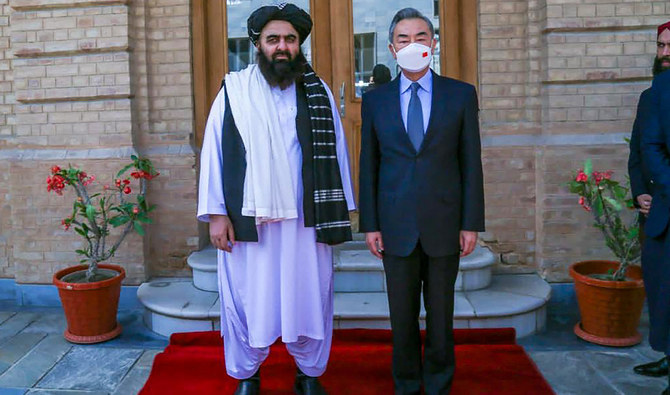Beijing: China said on Tuesday Afghanistan’s Taliban government will need to introduce political reforms, improve security and mend relations with its neighbors before receiving full diplomatic recognition.
Beijing does not formally recognize Afghanistan’s Taliban rulers, although both countries host each others’ ambassadors and have maintained diplomatic engagement.
“China has always believed that Afghanistan should not be excluded from the international community,” foreign ministry spokesperson Wang Wenbin said on Tuesday when asked if China would now recognize the Taliban government.
“We hope that Afghanistan will further respond to the expectations of the international community, build an open and inclusive political structure (and) implement moderate and stable domestic and foreign policies,” he said.
Wang also said China urged Kabul to “resolutely combat all types of terrorist forces, live in harmony with all countries around the world, especially neighboring countries, and integrate with the international community at an early date.”
“As the concerns of all parties receive stronger responses, diplomatic recognition of the Afghan government will naturally follow,” he said.
The Taliban government has not been officially recognized by any country since seizing power after the chaotic withdrawal of US troops in August 2021.
However, Kabul and Beijing have maintained some ties.
Afghanistan’s new rulers have promised the country would not be used as a base for militants and, in exchange, China has offered economic support and investment for reconstruction.
China’s foreign ministry said in a position paper on Afghanistan released this year that it “respects the independent choices made by the Afghan people, and respects the religious beliefs and national customs.”
























